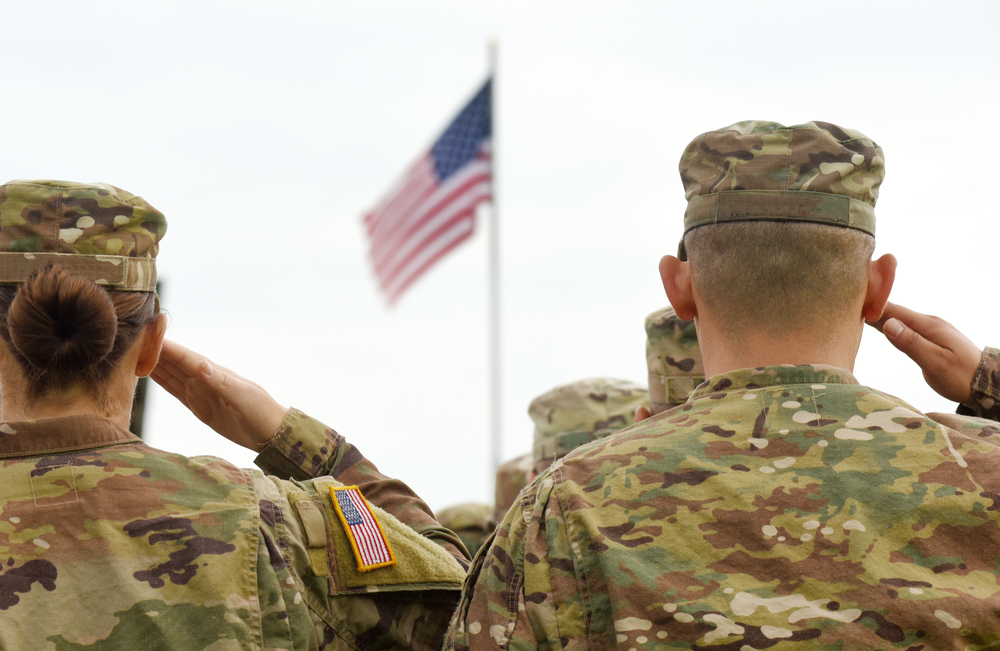Treatment for Military PTSD
Members of the military are more likely to be exposed to traumatic situations, even if they haven’t served in combat. It’s normal to carry troubling events with you for months or years after they occur. Cumberland Heights offers treatment services for veterans and active duty military struggling with PTSD and substance use disorder.

We Know What You've Been Through
Everyone deals with a bit of stress from time to time, but too much pressure can lead to lasting mental health issues. For example, symptoms that persist for longer than a few months after a traumatic event may be signs of post-traumatic stress disorder (PTSD): a diagnosis common among members of the United States Armed Forces.
This mental health condition can affect anyone who witnesses a traumatic event, experiences sexual assault or encounters any imminent threat. 70% of adults will experience a traumatic event, according to The National Council of Behavioral Health. This number is much higher among those who have served. It isn’t difficult to see why the stress of war-related combat has led to military PTSD symptoms.
Combat Exposure and Increased Post-Traumatic Stress
The “S” in PTSD looks different for combat veterans and others who have served. The risk of developing PTSD increases with repeated exposure to combat, personal injury and watching others be wounded or killed.
Exposure to heavy casualties or unexpected deployments can contribute to increased levels of psychological distress. The Department of Veterans Affairs conducted a study that showed that because veterans are more likely to be exposed to traumatic events, they are at higher risk for developing PTSD.
Furthermore, the potential of exposure to traumatic stressors remains a reality for family members of those who choose the military as their occupation. Depending on the individual, symptoms of post-traumatic stress will vary and be unique to their situation.
Some common symptoms of military PTSD may include:
- Recurring flashbacks
- Avoidance of traumatic memories
- Distressing dreams
- Persistent hyperarousal
- Protective or combative behavior
Managing symptoms of chronic PTSD can result in reduced quality of life and, in some cases, severe functional impairment. Before returning to civilian life, early and accurate detection is essential, and many veterans are not adequately treated. Additionally, the avoidant component of PTSD often makes it difficult for individuals to seek care. When meeting life’s challenges becomes difficult, stress may arise and be detrimental to a person’s health.
In leaving the military, combat veterans and others who have served may experience a loss of self-esteem or be confused about their identity. In fact, the National Center for PTSD cites that individuals with this disorder are more likely to abuse drugs and alcohol. For veterans, more than 20% with PTSD have a substance use disorder. Building a network of emotional support and maintaining a positive attitude can help someone maintain a positive attitude. Sticking to a routine is one tactic for managing stress, as well as exercise and psychotherapy. Seeking professional help is sometimes the only way to mitigate stress when someone feels helpless or overwhelmed.
Finding Peace After the Battle: Treatment and Support for Veterans
Cumberland Heights is a non-profit organization that has provided services for those affected by alcohol or drug addiction. Our mission is to transform lives by giving hope and healing to anyone that requires addiction treatment services through tailored outpatient care. This is achieved through the operation of Outpatient Recovery Centers like the one we’ve established in Clarksville, Tennessee. To learn more about our services, contact us today. We look forward to speaking with you.







